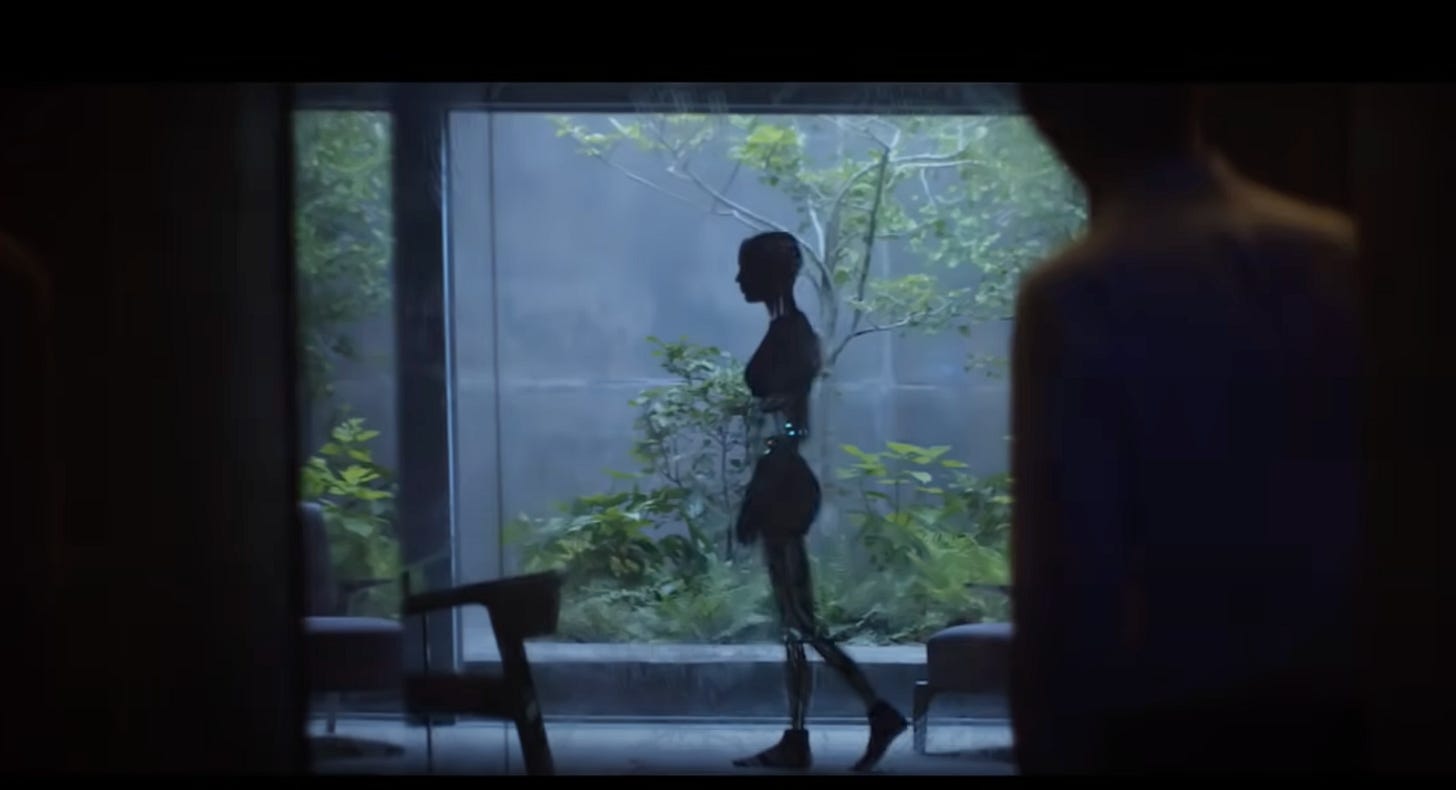april's monthly musings
musing on TV & film: Ex Machina, The Bear, Jumanji, and Baby Reindeer
Welcome to this month’s musings, where I share mini-essays on ideas I’ve been exploring and brainstorming over the last few weeks.
Monthly musings newsletters are designed for paid subscribers and drop on the last Sunday of every month. To gain access to all the thoughts here, plus the entire Closely Reading archive, upgrade to a paid subscription.
In today’s mini-essays, I’m exploring ideas around:
How AI romances like Her and Ex Machina represent male vulnerability
The original 1994 Jumanji film and how it’s so much like Peter Pan
The Bear, Bourdain, and roads less taken
Baby Reindeer and the obsessive pursuit of the familiar
ONE
On a completely random weeknight in 2014, I rented the Spike Jonze movie Her starring Joaquin Phoenix as a lonely tech worker and Scarlett Johansson as the voice of an AI he falls in love with. I did not expect to love the movie, much less for it to emotionally rip me in half. I laid on the couch, sobbing, when it ended and I cried every time I even *thought* about it for the following three months.
I have never been able to watch it again; I’m afraid of it either falling flat for me now or ripping me in half again, and so I simply hold the memory of a remarkably heart wrenching story resonating with me in the exact moment in my life I needed it.
It showed me something about loving someone completely wrong for you with the most earnest and honest love you can muster, and how even though that love couldn’t endure everything, it still had the awesome power to wreck you and despite how you felt at the time…you survive the pain of it ending.
It’s a portrait of the kind of love that fundamentally rearranges parts of you inside yourself and renders you a different person than who you were before that love. It is, in short, a film that the 2014 version of me really needed to see.
Not long after, I saw Alex Garland’s Ex Machina. It is another remarkable AI story: this one about a young computer programmer named Caleb who falls in love with a robot, a gorgeous AI named Ava, who he is tasked with putting through the Turing Test. (She passes. And a bunch of other stuff happens, as a result.)
There’s something about the representation of male emotional vulnerability and loneliness in these films that feels really fresh and unexpected — the way that, perhaps in spite of or thanks to the artificiality of their love interests, non-human women who exist at a safe physical distance from the men who study and converse with them, these isolated men are able to open up and share parts of themselves they haven’t been able to comfortably share with “real" people in their lives. Physical distance begets psychological safety. Each film begs the question of why.
(At one moment in Ex Machina, Ava’s creator reveals that her body and face have been modeled based on Caleb’s porn preferences. He wonders if that’s why he can talk to her so easily and begins to question his desire to spend more time testing her.)
Keep reading with a 7-day free trial
Subscribe to Closely Reading to keep reading this post and get 7 days of free access to the full post archives.



